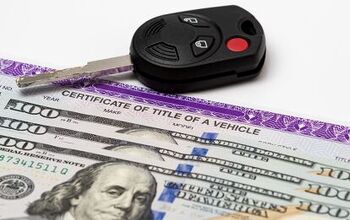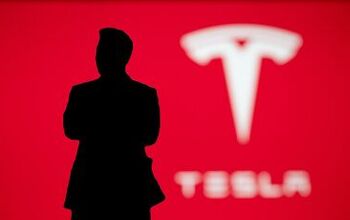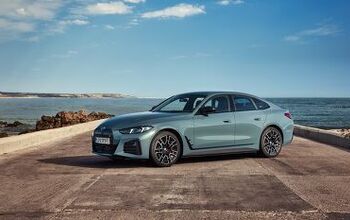Germany to Cities: Go Nuts With the Diesel Bans, Starting Now

It’s open season on compression ignition vehicles in the Fatherland. The birthplace of the diesel engine now says German cities can implement diesel driving bans whenever, and wherever, they want.
The Friday ruling by the country’s top court comes after a lawsuit against Germany and four other European Union member states by the EU, the result of higher-than-allowed air pollution levels in numerous urban areas.
“Thanks, dad,” the country’s auto industry must be thinking.
While this may seem like a heavy-handed, “ Euro Sausage” type approach to the affairs of European nations by the EU, smog-causing nitrogen oxide isn’t a pleasant gas, and diesel vehicles — older ones especially — are the main culprit.
Germany’s top automakers, each a longtime proponent of diesel technology, stand to lose money and customers as the public, fearful of planned or future bans in their own cities, flock to gas- or electric-powered offerings. Hamburg is expected to implement a diesel ban by the end of the month. Other large cities, like Stuttgart, Dusseldorf, and Munich, could soon follow.
The ruling by the country’s administrative court in Leipzig states that cities can ban the use of diesel-powered cars and trucks on certain roadways, or sections of them, immediately. There’s no grace period. One caveat is that vehicles conforming to ultra-stringent Euro 6 emissions standards would still be allowed. This standard came into effect in 2015.
For broader areas of cities, local governments are allowed to implement a phased approach that allows the operation of vehicles meeting Euro 4 emissions standards (in effect from 2005 to 2009).
The ball really got rolling on diesel bans back in February, when Germany’s top court ruled that environmental groups could sue cities that aren’t taking proper action on enforcing European air pollution rules.
Once the court opened the door to driving bans, sales of diesel cars plunged roughly 25 percent in Germany in March (after sinking 19.5 percent in February and 17.6 percent in January). Incentives appeared on some diesel cars.
In the home country of Volkswagen Group, the automaker is currently in the midst of fixing the emissions software on 2.8 million vehicles. Mercedes-Benz and BMW could be forced to offer upgrades for vehicles with non-Euro 6 engines. According to Reuters, research firm Evercore ISI estimates the ruling could cost the country’s auto industry $17.1 billion.
[Image: ©2017 Murilee Martin/The Truth About Cars]

More by Steph Willems
Latest Car Reviews
Read moreLatest Product Reviews
Read moreRecent Comments
- ToolGuy Let's count the poor decisions: Honda 18 model years past peak Honda. Ohio. Following too closely ('rock on the highway' doesn't leap up and attack your vehicle by itself, it is riding on a vehicle or thrown up by a vehicle, and you should be alert to this). Ohio. Not enough doors. Choosing to expand family -- in Ohio. 😉 Also not great at math.Engine bay picture: At least take a shower before your glamour shot lol.
- ToolGuy Took me a minute to post; had to go back and see which account I was using the last time I commented on this topic (consistency is important). Thank you for your patience.
- ToolGuy Ok wow, just wow. I used to live in America. Land of the free -- have I heard that somewhere? And here come TTAC writers and commentariat goose stepping in lockstep, dancing on the grave of liberty. Didn't your dysfunctional homeowners association get all that government overreach out of your system? I thought we won WW2, guess I was mistaken.
- Dartman If one is so hellbent on drawing attention to themselves just mount a big “Trump 2024” or “Black Lives Matter” flag (your choice) on your truck and call it day. Lot cheaper, same result.
- AZFelix I'd buy a 'harlequin' edition if it was composed of a company's complete palette of greys and silver.Family had a couple of Pontiacs in teal and purple in years past. I was not a fan.My current ride is Lakeside Blue.


































Comments
Join the conversation
wow, look at all the racists and trump base morons on this site
We used to live in Germany (Cologne to be exact) and moved back to the US in 2015. A couple of points:- - Fuel is expensive (taxation policy), diesels are/were therefore very popular. We had a 2008 VW Golf Kombi (known as a sportwagon here) TDi, very torquey, tiny hp but amazing on fuel. - German cities can be very grimy, I biked to work through Cologne every day, black particulates cover everything (these could come from diesel vehicles &/or the coal powerplants) - The coal industry is huge and very powerful politically. There are several massive opencast coal mines & neighboring coal fired powerplants to the West of Cologne. Trying to keep your home windows clean is very difficult.... - Everyone was always ill with low grade colds & respiratory ailments. Anecdotal for sure but obviously prevalent. It's noticeable how much cleaner things seem back in the good 'ol US. I'm sure it's not just the diesel thing but a combination of factors. Just my 5c worth.